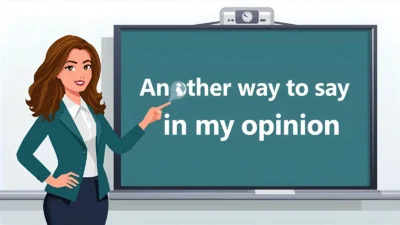The phrase “I hope you are doing well” is one of the most common greetings in professional and personal emails. It’s polite, kind, and sets a positive tone. However, it’s also overused, especially in business correspondence — making your messages feel repetitive or impersonal.
If you want your emails to sound more genuine, warm, or professional, try using creative alternatives that fit the tone of your message. Below are 47 thoughtful alternatives to “I hope you are doing well,” each with meaning, explanation, example, best use, and tone.
🌿 Professional and Polite Alternatives
1. I hope this message finds you well
Meaning: A formal wish for someone’s good health and mood.
Explanation: A polished standard greeting in emails.
Example: I hope this message finds you well. I’m reaching out to discuss our upcoming project timeline.
Best Use: Professional emails.
Tone: Formal, courteous.
2. I trust you’re doing well
Meaning: Expresses confidence that the recipient is fine.
Explanation: Slightly more confident and less generic.
Example: I trust you’re doing well and having a productive week.
Best Use: Business correspondence.
Tone: Professional, respectful.
3. I hope all is well with you
Meaning: A wish for general well-being.
Explanation: Softer than the original but equally polite.
Example: I hope all is well with you and your team.
Best Use: Email openings, light correspondence.
Tone: Neutral, kind.
4. I hope you’re having a great week
Meaning: Shows interest in the person’s current state.
Explanation: Adds warmth and friendliness.
Example: I hope you’re having a great week so far!
Best Use: Professional or casual communication.
Tone: Friendly, upbeat.
5. I trust you’ve been keeping well
Meaning: Indicates care and respect for someone’s health.
Explanation: Often used after a gap in communication.
Example: I trust you’ve been keeping well since our last meeting.
Best Use: Reconnecting emails.
Tone: Courteous, refined.
6. I hope everything is going smoothly for you
Meaning: A wish for things to be running well.
Explanation: Works well when referring to work or projects.
Example: I hope everything is going smoothly for you and your team.
Best Use: Work-related emails.
Tone: Professional, considerate.
7. I hope you’ve been doing great
Meaning: Expresses optimism about the recipient’s wellbeing.
Explanation: Casual yet respectful.
Example: I hope you’ve been doing great since we last spoke.
Best Use: Colleagues or clients with whom you have rapport.
Tone: Friendly, professional.
8. I hope your week is off to a good start
Meaning: A pleasant greeting, especially at the start of the week.
Explanation: Shows thoughtfulness and timing awareness.
Example: I hope your week is off to a good start! I wanted to follow up on our proposal.
Best Use: Monday emails, casual professional tone.
Tone: Light, optimistic.
9. I hope you had a restful weekend
Meaning: A friendly and considerate greeting.
Explanation: Perfect for early-week emails.
Example: I hope you had a restful weekend and are ready for another busy week.
Best Use: Weekly communication.
Tone: Warm, personable.
10. I hope you’ve been well
Meaning: A versatile and natural opener.
Explanation: Works in nearly any context.
Example: I hope you’ve been well. I wanted to share an update on the project timeline.
Best Use: General correspondence.
Tone: Neutral, kind.
💼 Formal and Respectful Alternatives
11. I trust this email finds you in good health
Meaning: A refined way to open formal correspondence.
Explanation: Adds sophistication and respect.
Example: I trust this email finds you in good health and spirits.
Best Use: Formal letters, international communication.
Tone: Polite, elegant.
12. I hope this email finds you thriving
Meaning: A positive spin emphasizing success.
Explanation: Conveys optimism and encouragement.
Example: I hope this email finds you thriving and in great spirits.
Best Use: Professional or motivational tone.
Tone: Uplifting, refined.
13. I hope you are having a pleasant day
Meaning: Simple and courteous.
Explanation: Perfect for polite openings without sounding cliché.
Example: I hope you’re having a pleasant day. I wanted to touch base about tomorrow’s meeting.
Best Use: Short professional notes.
Tone: Courteous, neutral.
14. I trust you’re enjoying a productive week
Meaning: Balances professionalism and positivity.
Explanation: Implies respect for the person’s time.
Example: I trust you’re enjoying a productive week so far.
Best Use: Business emails.
Tone: Professional, upbeat.
15. I hope all has been well on your end
Meaning: A polite inquiry about someone’s situation.
Explanation: Sounds friendly but remains professional.
Example: I hope all has been well on your end — I wanted to follow up on our previous discussion.
Best Use: Catch-up or follow-up emails.
Tone: Warm, composed.
16. I hope you’re doing wonderfully
Meaning: A cheerful and uplifting greeting.
Explanation: Adds enthusiasm and positivity.
Example: I hope you’re doing wonderfully and enjoying the new project.
Best Use: Friendly business or personal messages.
Tone: Positive, bright.
17. I hope this note finds you in good spirits
Meaning: A warm wish for happiness and peace.
Explanation: More personal than “doing well.”
Example: I hope this note finds you in good spirits and health.
Best Use: Formal or semi-formal letters.
Tone: Kind, polished.
18. I hope you’re having a successful week
Meaning: Encourages positivity and productivity.
Explanation: Suitable for goal-oriented communication.
Example: I hope you’re having a successful week so far!
Best Use: Corporate or client-facing messages.
Tone: Professional, upbeat.
19. I hope life has been treating you kindly
Meaning: A gentle and thoughtful check-in.
Explanation: Sounds genuine and heartfelt.
Example: I hope life has been treating you kindly since we last met.
Best Use: Reconnecting after time apart.
Tone: Warm, sincere.
20. I trust things are going well for you
Meaning: Expresses faith that all is positive.
Explanation: Simple and adaptable to any tone.
Example: I trust things are going well for you and your team.
Best Use: General business or friendly exchanges.
Tone: Balanced, professional.
❤️ Friendly and Personal Alternatives
21. Hope you’re doing great
Meaning: A cheerful and informal variant.
Explanation: Common in casual emails or texts.
Example: Hope you’re doing great! Wanted to share some exciting updates.
Best Use: Colleagues or friends.
Tone: Friendly, upbeat.
22. Hope you’ve been staying well
Meaning: A gentle check-in about health and well-being.
Explanation: Works well during times of uncertainty or change.
Example: Hope you’ve been staying well during these busy weeks.
Best Use: Friendly but professional tone.
Tone: Caring, polite.
23. Hope things are going well for you
Meaning: Expresses general goodwill.
Explanation: Warm but not too formal.
Example: Hope things are going well for you — just wanted to follow up on our conversation.
Best Use: Broadly applicable.
Tone: Neutral, friendly.
24. It’s great to connect again
Meaning: A warm reintroduction after some time apart.
Explanation: Avoids generic greetings altogether.
Example: It’s great to connect again! I wanted to discuss our next steps.
Best Use: Follow-up or reconnection messages.
Tone: Personable, professional.
25. I hope you’re doing fantastic
Meaning: A positive and energetic alternative.
Explanation: Brings brightness and enthusiasm to your tone.
Example: I hope you’re doing fantastic! Excited to share the new proposal.
Best Use: Friendly professional or personal settings.
Tone: Upbeat, genuine.
Conclusion
“I hope you are doing well” is a timeless and polite opener — but refreshing your greetings keeps your communication natural and engaging.
- For formal emails, try “I trust this email finds you in good health” or “I hope this message finds you well.”
- For friendly tones, use “Hope you’re doing great” or “I hope your week is off to a good start.”
- For personal warmth, go with “I hope life has been treating you kindly” or “It’s great to connect again.”
Choosing the right alternative helps you sound professional, thoughtful, and authentic — creating a positive impression right from the start.



